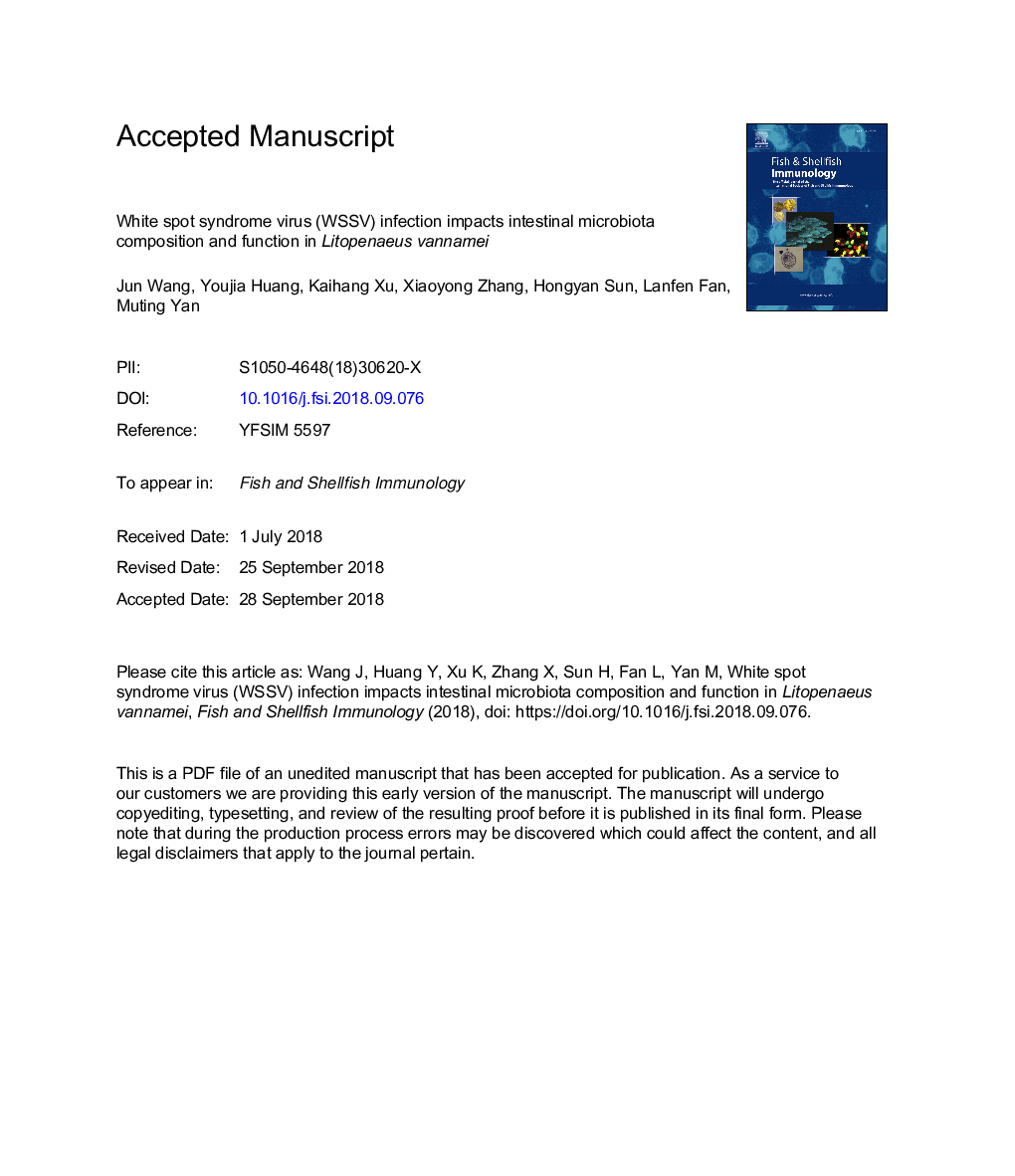| Article ID | Journal | Published Year | Pages | File Type |
|---|---|---|---|---|
| 11019414 | Fish & Shellfish Immunology | 2019 | 29 Pages |
Abstract
Intestinal microbiota homeostasis is crucial to the health of host. Pathogen invasion results in dynamics of microbiota composition and structure, disrupting their function in maintaining host health. WSSV is the most prevalent viral pathogen and is able to cause extremely high mortality in Litopenaeus vannamei. However, the changes of intestinal microbiota induced by WSSV are yet to be elucidated. In this study, we analyzed and compared the microbiota of healthy and WSSV-challenged shrimp intestines. Though the richness and diversity of microbiota was barely affected by WSSV, the abundance of predominant phyla like Proteobacteria and Fusobacteria were upregulated significantly, while Bacteroidetes and Tenericutes were significantly decreased in WSSV-infected shrimps. At the genus level, significant increase was observed in Photobacterium, Propionigenium and Arcobacter, as well as significant decrease in Candidatus Bacilloplasma and Flavobacterium in WSSV-infected shrimps. Additionally, metagenomic predictions by PICRUSt suggested that the altered microbiota was mainly related to metabolism, human diseases, genetic information processing, environmental information processing and cellular processes. These results suggested that the invasion of WSSV could impact intestinal microbiota composition and function in L. vannamei.
Related Topics
Life Sciences
Agricultural and Biological Sciences
Aquatic Science
Authors
Jun Wang, Youjia Huang, Kaihang Xu, Xiaoyong Zhang, Hongyan Sun, Lanfen Fan, Muting Yan,
